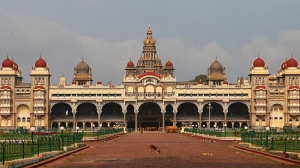Back from brink?
Bangladesh8217;s army must remain in the barracks if its fragile democracy is to be protected

Last week was a particularly momentous one for Bangladesh amidst the political maelstrom buffeting the country. Among the more disquieting signs from that country last week was the emergence of the army uniform on Dhaka8217;s streets, after President Iajuddin Ahmed8217;s declaration of emergency on Thursday. With Ahmed8217;s own resignation as the country8217;s president, that moment has hopefully passed. Bangladesh, let us remember, has emerged twice from rough brushes with the military jackboot and Sheikh Khaleda Zia, when she was in power, was quite amenable to shoring up her government by cosying up to the army. But if Bangladesh8217;s fragile democracy is to be protected, the army must remain in the barracks.
Before his resignation, Iajuddin Ahmed 8212; who had been appointed president by Sheikh Khaleda Zia before she relinquished power 8212; had played the role of both president and advisor to himself, during the crucial pre-poll period. This dual authority, as well as his public stances, had clearly cast a shadow over the credibility of the election process. His departure, therefore, was inevitable. But Bangladesh must protect itself from the danger of the army trying to fill the power vacuum accompanying his departure. This, in turn, demands a mature response from all the important players, from Justice Mohammad Fazlul Haque, who has taken over as chief advisor, to political leaders, especially those in the 14-party opposition coalition, led by Sheikh Hasina Rehman, the Awami League chief. The opposition should re-think its strategy of boycotting the elections, and work towards investing the electoral process with credibility.
This, of course, is not an easy task given the deeply polarised political order in the country and given the personal and political rivalry between two of its most powerful politicians. It is a polarisation that has been marked by a disturbing mobilisation of Islamic fundamentalism and military might. Yet, when given the chance, ordinary Bangladeshis have not only displayed a deep attachment to their ability to vote, they have also inevitably voted for a secular order. They must now be given the chance to have their say in a free and fair manner.
- 01
- 02
- 03
- 04
- 05































